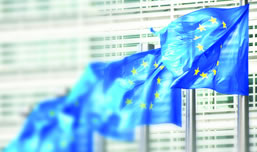Net Neutrality in Key Jurisdictions
To date, only Chile and the Netherlands have legislated to preserve net neutrality. After sustained online and offline pressure, Chile amended its telecommunications law in June 2010.
In June 2011 the lower house of the Netherlands' legislature passed a law to prevent operators from blocking internet applications, charging for them or prioritising one form of content over another. Passage of the bill through the senate in the Netherlands is expected to be a formality.
It is too early to tell whether these jurisdictions will lead the way to a net-neutral future, or whether they are destined to be outliers in a world where limited regulation is the norm. This article contains a brief overview of the progress of the net neutrality debate in three key jurisdictions: the UK, the EU, and the USA.
United Kingdom
The UK currently  has no specific law in place in respect of net neutrality, and the UK government has indicated it is unlikely to regulate in this area. In November 2010 the Communications Minister, Ed Vaizey MP, said that a lightly regulated internet was "good for business, good for the economy and good for people". He also stated that early responses to Ofcom consultation on the issue showed there was broad agreement on the need for traffic management.
has no specific law in place in respect of net neutrality, and the UK government has indicated it is unlikely to regulate in this area. In November 2010 the Communications Minister, Ed Vaizey MP, said that a lightly regulated internet was "good for business, good for the economy and good for people". He also stated that early responses to Ofcom consultation on the issue showed there was broad agreement on the need for traffic management.
Accordingly, it appears the UK government will take a non-interventionist approach in the foreseeable future. However, the Communications Minister did say that while he believed ISPs should be free to favour one content provider over another to manage traffic, ISPs must keep consumers informed about what they are doing in this regard.
European Union
The EU Commission published a short report on the open internet and net neutrality in Europe in April 2011. This confirmed its commitment to "the maintenance of a robust best-efforts internet to which everyone has access". However, it also stated that traffic management of some kind would be "necessary to ensure the smooth flow of internet traffic, particularly at times when networks become congested."
 According to the report, the Commission believes that the rules on transparency, switching and quality of service introduced by the revised EU electronic communications framework, should be sufficient to produce competitive outcomes. With Member States still working to implement the relevant provisions, the Commission has said it will take a 'wait and see' approach before issuing further guidance or legislation.
According to the report, the Commission believes that the rules on transparency, switching and quality of service introduced by the revised EU electronic communications framework, should be sufficient to produce competitive outcomes. With Member States still working to implement the relevant provisions, the Commission has said it will take a 'wait and see' approach before issuing further guidance or legislation.
The Body of European Regulators for Electronic Communications (BEREC) will report at the end of 2011 on its investigations into various net neutrality issues. The Commission intends to publish BEREC's findings, including any instances of ISPs blocking or throttling certain types of traffic, which the report states to be a key concern. Neelie Kroes, the EU Commission's Vice-President for the Digital Agenda stated on 19 April 2011 that if such behaviour is occurring, and if consumers are being misled about broadband speeds, she would "not hesitate to introduce more stringent measurers". In any event, the Commission has reserved its rights to assess, under its existing competition law powers, any behaviour related to traffic management which may restrict or distort competition.
United States of America
Net neutrality has been the subject of extensive lobbying in the US from both supporters and opponents of regulation. On 1 August 2008 the Federal Communications Commission ("FCC") formally upheld a complaint against Comcast, the largest US cable provider. The FCC ruled that Comcast had illegally inhibited users of its high speed internet service from using file sharing software.
 Kevin J. Martin, the Chairman of the FCC, said the order was intended to send a message that ISPs and communications companies have no right to prevent consumers using networks as they see fit without good reason. However, on 6 April 2010 the United States Court of Appeal for the District of Columbia ruled in Comcast Corp. v. FCC that the FCC lacks authority to force ISPs to keep their networks open to all forms of content.
Kevin J. Martin, the Chairman of the FCC, said the order was intended to send a message that ISPs and communications companies have no right to prevent consumers using networks as they see fit without good reason. However, on 6 April 2010 the United States Court of Appeal for the District of Columbia ruled in Comcast Corp. v. FCC that the FCC lacks authority to force ISPs to keep their networks open to all forms of content.
On 21 December 2010, the FCC approved new rules banning cable television and telephone service providers from preventing access to competitors or certain web sites such as Netflix. The rules, which come into force on 20 November 2011, do not keep ISPs from charging more for faster access, and were described in the New York Times as "net semi-neutrality" at best. However, Congress and key industry players are expected to challenge the rules through the US courts after 20 November, so it remains to be seen how much effect this form of regulation will have in the long term.
Summary
It appears that the governments of the UK and EU currently favour an approach whereby market forces will provide an open access internet in which ISPs are free to manage traffic as they see fit, and where existing legal frameworks such as competition law will curb behaviour which genuinely distorts competition. The position in the USA is less clear, with the FCC apparently ready to regulate to some degree, but having suffered reversals and opposition from the judiciary and legislature. It seems likely at this stage that all three jurisdictions will introduce no more than light regulation, with the authorities prepared to step in where necessary to preserve consumer access to networks and to ensure genuine competition.
UPDATE - BEREC publishes draft net neutrality guidelines
If you have any questions on this article please contact us.

"It seems likely at this stage that all three jurisdictions will introduce no more than light regulation"
UPDATE
|

